Your website’s domain name is like its street address on the internet. It’s often the first thing a potential customer sees. Just like a physical address can tell you a lot about a business, your domain name can say a lot about your brand. But did you know it also plays a role in how easily people find you online through search engines like Google? Choosing an SEO friendly domain name is a foundational step in building a strong online presence.
Think of it as giving your business a head start in a very crowded race. A good domain helps both search engines and humans understand what your website is about before they even click. This article will explore why an SEO friendly domain is so important. We will offer practical tips to help you choose the best one for your business.
What Makes a Domain Name SEO-Friendly?
An SEO friendly domain name is one that is easy for both search engines and users to understand and remember. It signals relevance and authority, which are key factors in search engine optimization (SEO). While having keywords in your domain isn’t the powerful ranking signal it once was, a relevant and clear domain contributes to a better user experience, which is a huge part of modern SEO.
Here are the core elements that make a domain name good for search:
- Relevance: It should reflect your brand, industry, or what you offer.
- Memorability: People should be able to recall it easily.
- Simplicity: It should be easy to type and say.
- Trustworthiness: It should look professional and credible.
Let’s break down how to achieve this.
How to Choose an SEO-Friendly Domain Name
Selecting the right domain requires a mix of creativity and strategy. It is one of the first big decisions you will make for your online brand.
1. Prioritize Your Brand Name
Your domain name should ideally be your business name. This is the simplest and most effective approach for brand building. When customers hear about your business, they will likely type your name directly into their browser or search engine. Having YourBrand.com makes it incredibly easy for them to find you.
For example, a business named “BrightBloom Flowers” would ideally want brightbloomflowers.com. It is clear, directly related to the brand, and easy to remember. Our own domain, moduet.com, is our brand name. It ensures when people search for MoDuet, they find us first.
2. Keep It Short and Simple
Long and complex domain names are hard to remember and even harder to type correctly. Imagine telling someone your website is thebestseattlecoffeeroastersandcafe.com. That’s a mouthful. A shorter alternative like seattlecoffeeco.com is much more effective.
Aim for a name that is concise and rolls off the tongue. This reduces the chance of typos and makes your site easier to share through word of mouth. When in doubt, say the name out loud. If it sounds complicated, it probably is.
3. Make It Easy to Type and Pronounce
Avoid using numbers or special characters in your domain name. These elements can cause confusion. For example, does “4” mean the word “four” or the digit? Does luv2dance.com look professional or like an old instant messenger username?
Stick to letters only. This clarity prevents what is known as “radio test” failure. If you can’t easily tell someone your domain name over the phone or on a radio ad without having to spell it out, it’s not a good choice.
4. Consider Keywords Wisely
In the past, having an exact match domain (EMD) like buycheapshoesonline.com was a powerful SEO tactic. Search engines have become much smarter since then. They now prioritize brand signals and user experience over keyword stuffing.
However, including a broad keyword can still be beneficial if it feels natural. For instance, if you are a plumber in Austin, a name like austinplumbingpros.com can quickly tell users and search engines about your location and service. It works because it describes the business clearly. Compare that to a branded name like SiphonFlow.com. The first is immediately understandable, while the second requires more marketing effort to build brand recognition.
If you choose to use a keyword, make sure it fits naturally with your brand. Avoid awkward combinations that look spammy. Google’s own search documentation emphasizes creating content for people, not just for search engines. This principle applies to your domain name as well.
5. Choose the Right Domain Extension
The domain extension, or Top Level Domain (TLD), is the part that comes after your name, like .com, .org, or .net. For most businesses, .com is the gold standard. It is the most recognized and trusted TLD globally. Most people instinctively type .com when searching for a website, so owning it can prevent traffic from going to the wrong place.
If .com is unavailable, other good options include .co, .net, or .org (if you are a nonprofit). In recent years, industry specific TLDs like .io (for tech startups), .ai (for artificial intelligence), or .shop (for ecommerce) have also become popular and are perfectly acceptable. Just be sure the extension aligns with your business and audience expectations.
What to Avoid When Choosing a Domain
Just as there are best practices, there are also common pitfalls to avoid.
- Hyphens and Numbers: As mentioned, these make domains harder to type and communicate.
my-awesome-site.comis more prone to errors thanmyawesomesite.com. - Trademarked Names: Never use another company’s trademarked name in your domain. This can lead to serious legal trouble and force you to give up the domain.
- Confusing or Double Letters: Be careful with names that result in double letters, as they can be hard to read and easy to mistype. For example,
expressservices.comcan be tricky.
Your Domain Is a Long-Term Investment
Changing your domain name down the road is a complex process. It involves migrating your entire website and setting up redirects to preserve your SEO value. It’s a significant technical task that can lead to temporary traffic loss if not done perfectly. That’s why it’s so important to choose the right domain from the start.
Think of your domain name as a long term investment in your brand’s digital foundation. A strong, SEO friendly domain name contributes to better brand recognition, user trust, and click through rates from search results. It works hand in hand with other critical marketing efforts, from content creation to technical SEO.
Ready to find the perfect domain for your business? Start by brainstorming ideas that reflect your brand and what you offer. Use a reliable domain registrar to check for availability and explore different options. Remember, the best domain is one that is memorable, brandable, and clear. It’s the first step toward building a successful online presence that connects with your audience and drives growth.
We Want To Talk To You About Your Marketing Goals.
Let’s Supercharge Your Online Growth!











